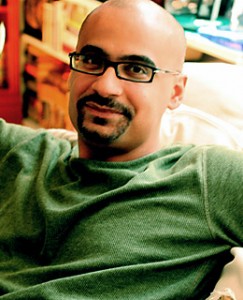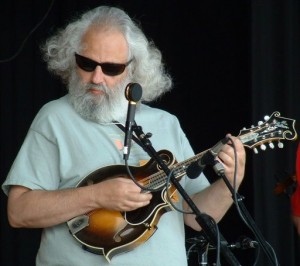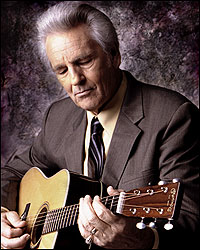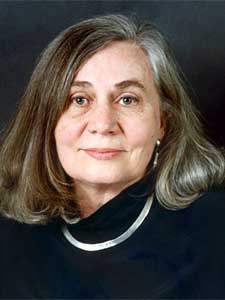Summer Reading: A Confession
categories: Cocktail Hour
2 comments
I have to confess, I didn’t get much reading done this season—or at least not the kind of of reading I associate with long, languorous summer days… Maybe I’ve found other inspirations–I’m not exactly sure what gives. Certainly I’ve seen (and played) a lot more music than in recent summers. Also, reading at night these days I tend to fall asleep. Travelling? I sleep. I can’t remember the last time a hot plot kept me up till three in the morning, or all the way to Dallas. If I’m up till two it’s because I’m working. Which means typing. Which keeps me awake. Sometimes.
#
Mac Bates, a writer and also my brother-in-law, suggested in these columns The Brief Wondrous Life of Oscar Wao, by Junot Diaz, which I enjoyed a great deal, even read in uncharacteristic fits and starts over a month or so, early summer. On the plane homeward from Alaska the woman across the aisle (not Sarah Palin, different flight), announced to me and all listeners that she loved the book. She was Dominican, too, like Oscar, and she remembered Trujillo and the fears of those years and thought or at least hoped that she and the whole country had come a long way, but still, Oscar’s plight and disaster had moved her, the sense of fate and doom and the brilliant way Junot had captured Dominican manhood, not in Oscar so much, but in Oscar’s sister’s boyfriend, who narrates a large chunk of the book (his sister narrates another chunk). Lady, we’re on a flight here, talk of doom unappreciated. But wasn’t it great to see someone so fired up about a book! And then coming down the stairs onto the tarmac (the telescoping gate thing hadn’t worked, an hour’s wait in the hot plane), the co-pilot saw Oscar in my hand and raced to catch up to me (as I hurried to my next flight). “I love that book,” he said. “Where’d you get it? Oh, it’s in paperback, good! I read like half of it and lost it and haven’t been able to find another copy! My mother gave it to me. I’m Dominican. Dominican-American. Where can I get it?”
I gave him my copy and then when the next flight was late bought myself a new one in the Borders Bookstore right by my gate and resumed as if nothing had happened, one copy of a book no different than the next. Anyway, I liked it very much, though I’m not sure I quite got the whole thing, a rush of voices and characters and time-shifts and location shots, drug warps and dialect cascades, really compelling. I love the footnotes, which Junot uses to write little essays about Dominican history, stuff most readers are going to need in order to understand what’s going on, in fact, to get the central disaster of the book.
So that one’s on my shelf like a new friend.
I read Anthill, too, by E.O. Wilson. I just like the guy despite hating him as a college student when I joined in the protests over his ideas about sociobiology, which it turned out I’d misunderstood (along with his other detractors), mixed them up with the social Darwinism of Spencer and other characters of the early 20th century, and then Hitler, of course. Anyway, the way I came to love Mr. Wilson again was via his book Journey to the Ants, which was assigned to me by Newsday for a book review. It’s a brilliant lay explanation of myrmecology, Mr. Wilson’s specialty and lifetime subject (with great photos. One is of the world’s biggest ant with the world’s smallest ant standing on its shoulder like a mouse might look on the shoulder of an elephant). He does feel that the worlds and societies of ants have something to say about our worlds and societies, okay.
The novel doesn’t quite play as a novel. It’s dominated by its main character’s undergraduate thesis on an ant colony near his home, awesome stuff, fascinating ant lore. The rest is just setting that up, really, characterizing this interesting young man, and leading us up to his career as environmental lawyer. The opening is wonderful—a nostalgic-sounding trip back to the character’s childhood, which has every marker of a 1930s childhood, a childhood like Wilson’s must have been, including an intense interest in Boy Scouts, which I just don’t think plays anymore: his character is supposed to be young much more recently. Despite the flaws I loved the book, loved it for its ants. And sentence by sentence, Wilson can write, though he’s prone to bromides, cliches, a certain conservatism (of the non-toxic variety, thankfully). All redeemed by a grand conservationism.
And essays. Quite a few, as befits my attention span these days. Quite a few by Nancy Lord, about Alaska ecology, primarily, also aging parents. And Janet Malcolm. And Gessner’s columns here, for sure. And way too much internet news. Is that where my reading time has gone? No–I used to do the same in magazines, that’s all (and the New York Times, which I’ve pretty well given up on–it’s gotten so, I don’t know, suburban). Oh, and magazines, still, Poetry Magazine among them–I love the discussions and reviews back of the book. And NYRB, always excellent. And the New Yorker, just about every word, many of them memorable, though I forget which. And drafts of several books by friends, and several by students. A lot of reading, come to think of it.
But let’s face it–I’m getting my narrative kicks other places than the page, often. I attended, for example, quite a few screenings at the Maine International Film Festival back in July, constant movies you’re never going otherwise see around here, by which I mean most of America and probably the whole world. And actors and directors and academics speak, and there’s live music. I particularly like hearing actors talk about their roles, and directors talk about the actors. No one ever mentions the writers. I got to see six of the 100 movies, all of them good, one really great: The Concert, which I think is getting some distribution, in French and Russian, with well-done subtitles. It’s about a disgraced and oppressed Russian composer reduced to mopping the floors at the Bolshoi Orchestra. One afternoon he’s pestered by the orchestra director, who wants things cleaner yet. The director storms off, and shortly the fax machine comes to life. Our janitor has a gander at the incoming: the orchestra has been invited on a last-minute basis (the LA Orchestra has cancelled) to play at a prestigious theater in Paris. Our man pockets the fax, and then with the help of friends and enemies conspires to form an orchestra of outcasts to play the gig. He also whoops a famous soloist—with ties to him that I shouldn’t give away—into taking part. Played by the French actress Melanie Laurent, wow. And the movie is very funny, very smart, very pleasing, and I think counts as summer reading, since I saw it twice and stayed awake both times, first time watching, second time reading it closely.
It’s about a disgraced and oppressed Russian composer reduced to mopping the floors at the Bolshoi Orchestra. One afternoon he’s pestered by the orchestra director, who wants things cleaner yet. The director storms off, and shortly the fax machine comes to life. Our janitor has a gander at the incoming: the orchestra has been invited on a last-minute basis (the LA Orchestra has cancelled) to play at a prestigious theater in Paris. Our man pockets the fax, and then with the help of friends and enemies conspires to form an orchestra of outcasts to play the gig. He also whoops a famous soloist—with ties to him that I shouldn’t give away—into taking part. Played by the French actress Melanie Laurent, wow. And the movie is very funny, very smart, very pleasing, and I think counts as summer reading, since I saw it twice and stayed awake both times, first time watching, second time reading it closely.
And if we can count movies, we can certainly count music, which I tend to narrativize. A couple of weekends ago a bunch of us attended the first annual Bluegrass Festival at Saddleback Mountain, a huge, hip, and rather underused ski mountain in Rangeley, Maine, about 45 minutes from here. This was a daytime affair, with the first acts playing in the morning, but our entourage (my family and our friend Sheila’s family with various friends and neighbor girls, and then all the friends we met up with at the festival). I was happy enough to go—a nice adventure—but I must admit being a little ho-hum about the whole bluegrass thing. Dave Grisman would be there—that’s the one name I knew. And I do love his playing, having come to him like so many others through his albums with Jerry Garcia. The first bands were just what I’d expected—great pickers, lots of tenor voices and songs about hollers and pigs and toothless grannies and so forth—but then came the Infamous String Dusters, who have taken the whole sound into a new era and new realms, a big-stage, spread-out band, great arrangements, songs with complicated changes and deep lyrics, breaks from 4/4 and 3/4 time, bridges in minor keys, a surprise, and a lift, maybe ten notches more than I’d expected.
My feet started in on their own, dancy tappy stuff.
Also, I found the cocktail tent, which had its own yard going up the hill, a grassy knoll you could watch the music from, a quarantine area for the overly happy, like the best low-security prison ever, just crime-scene tape between you and the impressionable teetotalers and children and Jesus people all around.
Dave Grisman came out in his oversized black t-shirt and felt he had to lecture a little about traditional instrumentation and voicings and harmonies and stuff, all the while playing beautifully with a great young band behind him, all pressed up against a couple of mikes in the old style. I mean, he was very serious, the way Robert Pinsky is serious about poetry, little talks after each song. You’re allowed to smile and stuff, and dance, sure, but there are certain distinguished traditions with which we best not mess. Also, I think he’s aware that working with Jerry has both brought him fame and cast doubt on his traditional roots. All very serious stuff to work out in a perfect, smoking, well-planned set, that emotional mandolin undermining all the boundary setting, tears to my eyes, another ten notches, whoa.
Okay, and then Del McCoury and his band comes out in these perfect suits and haircuts. Mr. McCoury is about 70 years old with a sweeping white pompadour and snakeskin boots, sky blue suit, Cambridge knot in his sober tie, gorgeous, not at all what I expected, which was overalls (or overhauls, as they call ’em here in Maine). His smile alone lifted things another ten notches, then ten more as the music started, pure joyous music making, no need for any cliff notes—just listen to this, folks! And ten more notches, burning solos and knot-tight harmonies in high-tenor voices. Slowly, you realize that the banjo and mandolin players are his sons. The fiddle player’s a thoroughbred Kentucky guy—you know he’s at the racetrack before every gig. The bass player (stand-up, of course), looks like an MBA student in those black spectacles and polished loafers. But. My god they rock. And half the songs are familiar. And McCoury wrote most of them! Wrote them twenty and thirty and forty and even fifty years ago. I’ve known him all my life and didn’t realize. And the band goes past its planned 45-minute set—they’re the last act—and they just keep going, more and more rockin’ (or I guess bluegrassin’) every song, more and more cheerful, more and more pleased, visibly so: this is a huge crowd and it’s a gorgeous evening and the sun is setting over endless mountains and lakes and forest and everyone’s dancing and shouting and racing about. So keep playing! And playing! And playing! Two hours in and they invite Grisman back out, and okay—another twenty notches, and twenty more–not many notches left. This is peak experience. This is stuff that’s never happened before and isn’t ever going to happen again. Even Grisman’s grinning. So bring his fiddle player out! And trade blazing licks fiddle-to-fiddle and mandolin-to-mandolin! The crowd is galvanized, streaming down the mountain, forgetting Frisbee games and picnic dinners, whoa!
Home again and I’ve started reading the novel “Home,” by Marilynne Robinson, a very quiet and beautiful opening, subtle problems emerging among the characters to drive the narrative, a book to keep me awake. I’m trying to decide if it’s as good as “Gilead,” a companion volume that I loved dearly, at least partly for it’s unjudgmental and unsentimental religion, which reminds me of my uncles and my grandfather, who were ministers.
But more on Ms. Robinson anon.








Even your weak reading summer seems pretty strong. We’ve got to get together for drinks and music-listening soon….make this cocktail hour more than virtual.
Sometimes I get down on my students for not reading the books I assigned but I should take a lesson from what just happened to me. Got up from a nap and picked a book off the shelf and started to read. Read about a quarter of Charles Bowden’s Red Line. It had been assigned to me in Ed Dorn’s class at CU Boulder in 1991. It only took me 19 years to get to the assignment.
Sounds like a glorious summer of literature, music and film to me. I love the conscious donation of the Diaz book ton the plane. Dave Grisman wins the prize for the most unexpected appearance.
My donation of Tracy Kidder’s compelling book about Paul Farmer’s work in Haiti, “Mountains Beyond Mountains,” was of the unconscious variety — I was so dazed I left it in the magazine pouch when the plane landed in San Jose. I can only hope that, like Aimee Bender a year earlier, the Kidder book found an appreciative reader on the next leg of the flight.
Keep up the entries.